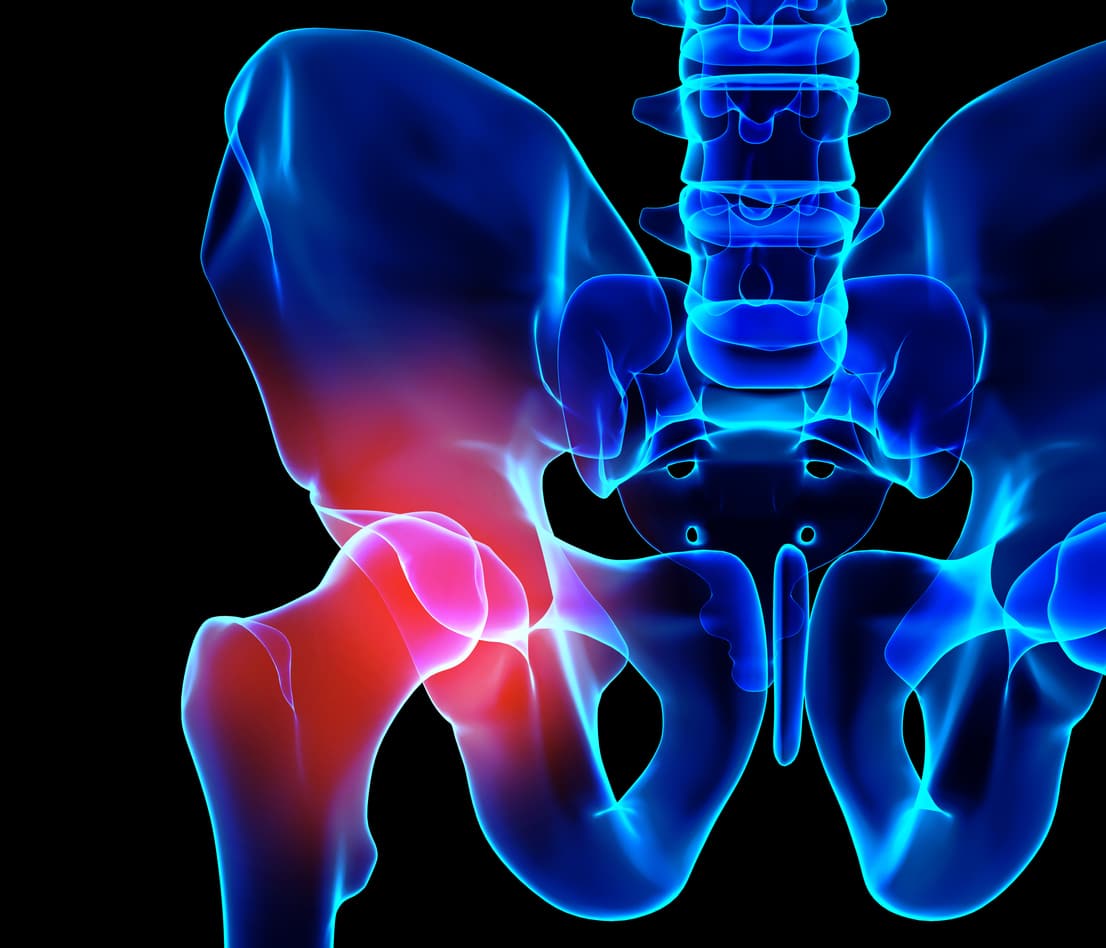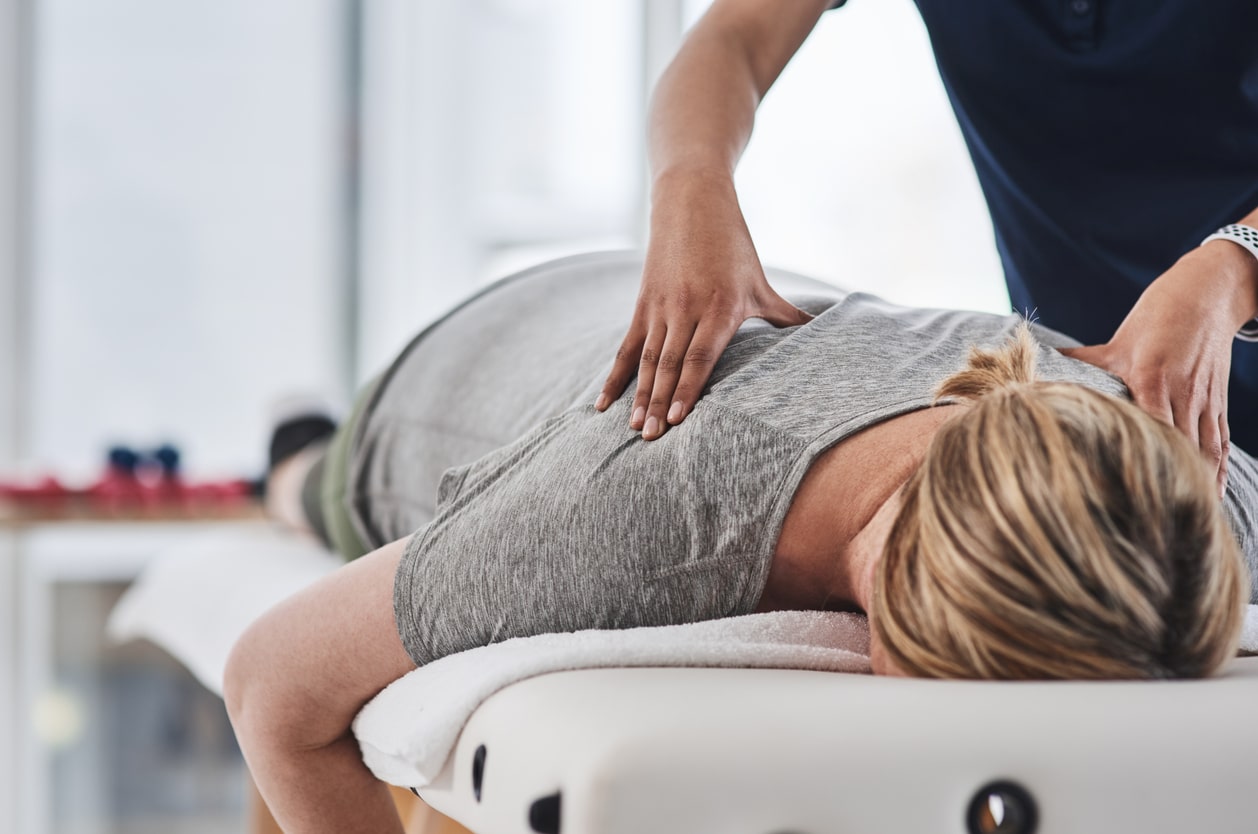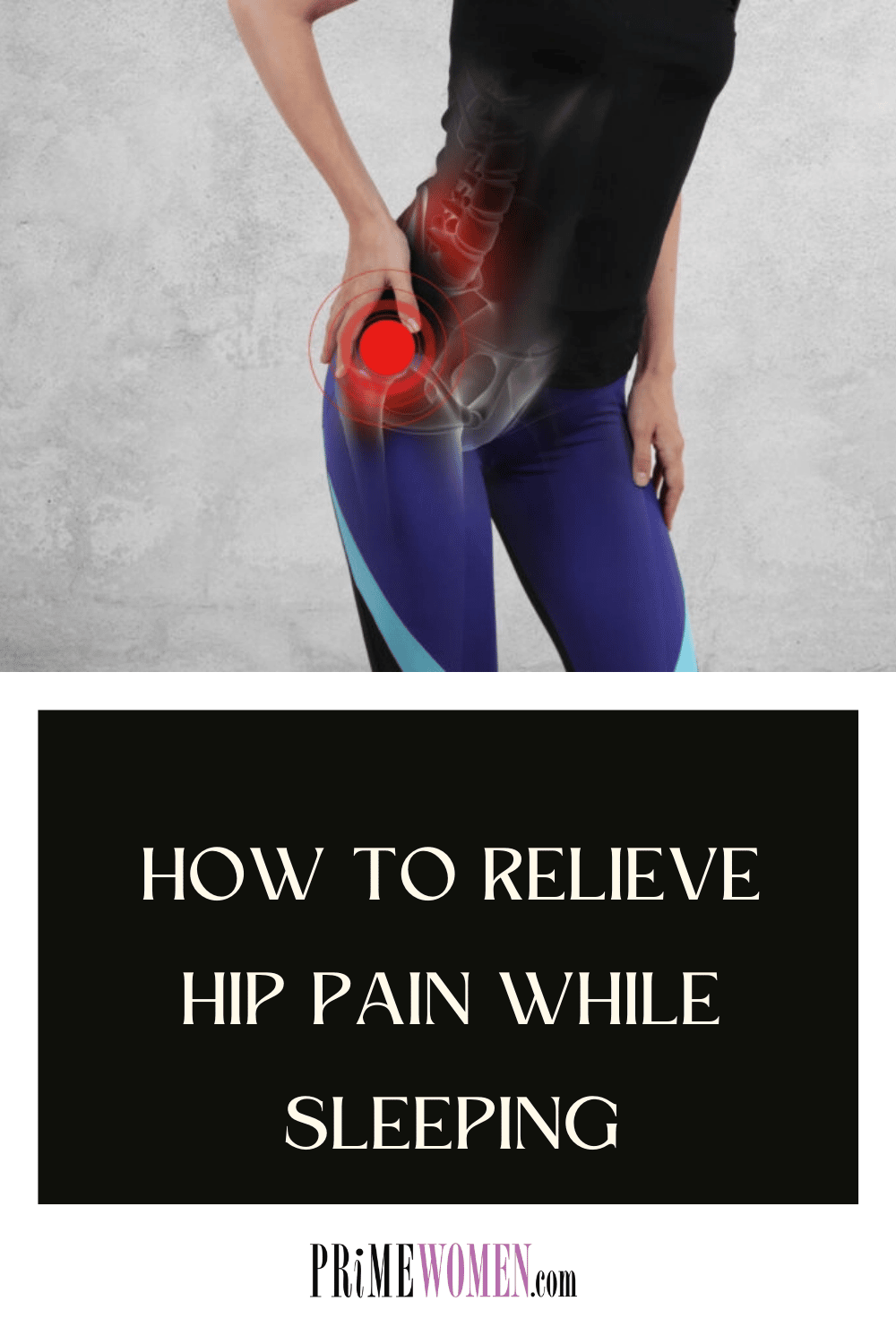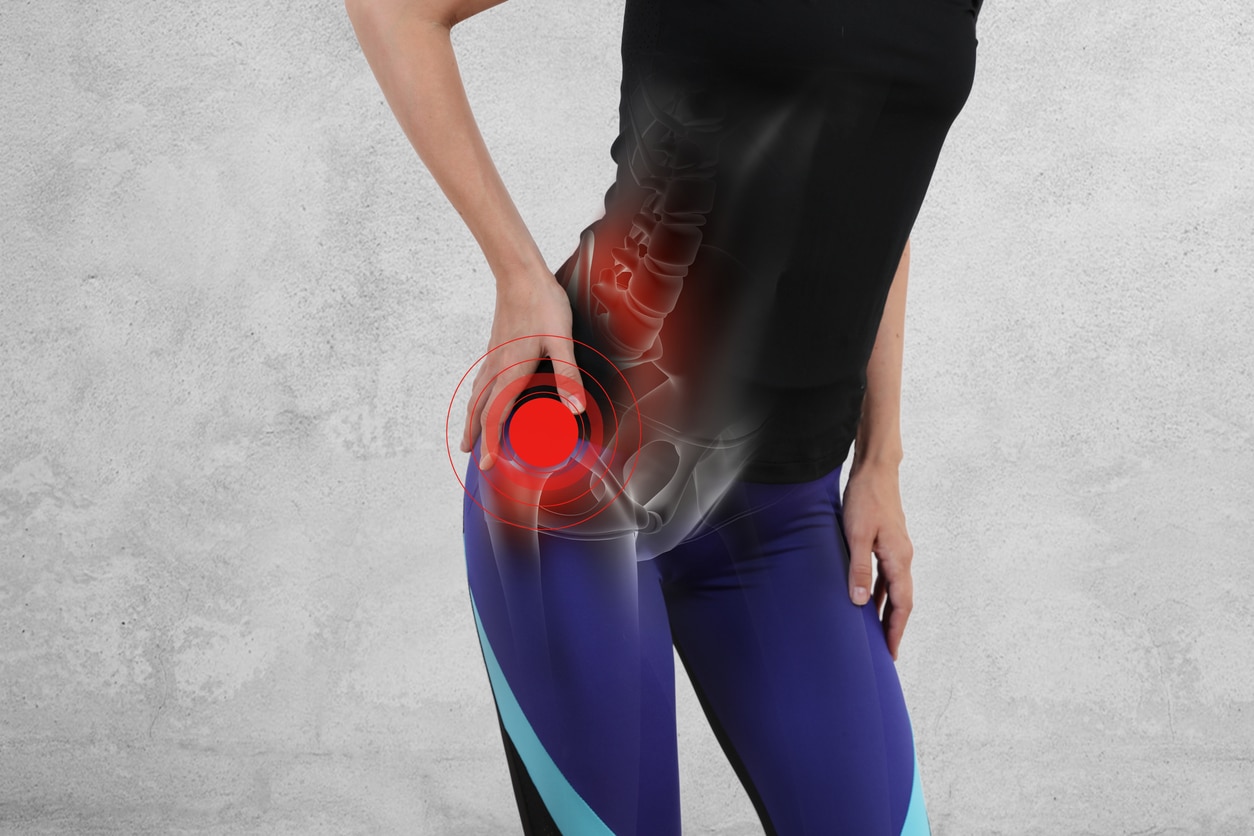Hip pain is one of the most common general types of pain experienced by people over the age of 50. However, hip pain is not exclusive to people above a certain age. Younger people, especially athletes, experience this kind of pain as well.
Several different issues can cause hip pain. According to the Mayo Clinic, this type of pain can result from arthritis, injuries, pinched nerves, cancer, pregnancy, or even your sleeping position.
Speaking of sleeping, when it comes to hip pain, getting a comfortable night’s sleep can be a real pain. If you’ve ever suffered through a night of sleep due to hip pain, then you are in the right place. Today we are chatting about ways you can relieve hip pain while sleeping so that you can get a full night’s sleep and also so that you can wake up without your hip pain dictating your day.

Leading Causes of Hip Pain
Bursitis
The joints in your body (including your hip bones) are filled with sacs of fluid that help to protect them when you move them. This protection is almost like a layer, and it is called bursae.
When those bursae sacs are doing their job, everything works smoothly. However, when they become inflamed, issues start to arise. When it comes to your hips, those issues include pain in a variety of forms. Here are some of the different types of hip pain you may experience if you are suffering from bursitis:
- Pain that occurs after sitting for long periods of time
- Pain that increases when you sleep
- Pain that begins as sharp and then transforms into an ache
Arthritis

There are a few different types of arthritis that can lead to hip pain. The most common is osteoarthritis, but you could also be experiencing rheumatoid arthritis, psoriatic arthritis, or septic arthritis.
Arthritic pain shows itself in several different ways, and hip pain is one of them. This type of pain may keep you from sleeping and may also come with a grinding sound that occurs when you move.
Sleeping Position

Your hip pain is not always a sign that you are suffering from some sort of long-term ailment. You may find that your pain is due to the way that you sleep at night.
It could be something as simple as having a mattress that is too hard or too soft, which is leading to your pain.
It could also be that you are putting unnecessary pressure on your hip because you sleep on your side. So try to adjust your sleeping position and lay on your back.
How to Relieve Your Hip Pain at Night
Pillows
In the short term, to get back to sleep as quickly as possible, there are a few different things you can do to alleviate hip pain that you may be experiencing.
One is to change your sleeping position. This sounds simple, and it is, but it can make a big difference in managing your pain immediately.
Another is to add some pillows to your bed. Not pillows for your head, but other parts of your body. A pillow between your knees can help alleviate stress and pressure on your hips. You may also want to try a pillow that fits under your hips to provide additional cushion and comfort. And, adding pillows under your knees when you lie on your back can help relieve hip pain as well.
In short, pillows may be your new best friend at night.
Over-the-counter medicine
For quick relief, you may also want to try over-the-counter medicines such as ibuprofen, Aleve, and more. Just be sure to talk to your doctor about taking these with any of the other medications you’re currently on to ensure their safety.
Ice or heat
If your hip pain is due to swelling, ice may help reduce your swelling and, thus, your pain.
However, if your pain is due to arthritis or muscle issues, heat will work best for you.
A new mattress
This isn’t as quick of a fix as the above, but if you find yourself with hip pain that doesn’t seem to go away, you may want to consider getting a new mattress. Consider getting one that is softer and provides your hips with more cushion.
Massages

Regular massages may be a good option if you find yourself suffering from chronic hip pain at night. Massages can help alleviate pressure from your joints and get rid of built-up lactic acid.
Surgery
Your doctor may find that surgery is the right option for you to help your hip pain. Surgery may include removing the bursa that may be the cause of your pain. It may include removing loose pieces of cartilage in the hip area. It may even involve replacing damaged bones in your hips.
It is key that if your pain doesn’t go away with the short-term fixes, you should consult with your doctor about what you may need to do so that your hip pain is no longer an issue. Your doctor may find that all you need to do is something as simple as stretching every day, or your doctor may find that you need more intense help, such as physical therapy or undergoing hip replacement surgery. It will depend on the cause of your hip pain and whether you need a more conservative treatment or a more invasive procedure. When it comes to your everyday life, especially for older adults, it’s best to seek out any treatment options for pain relief. It’s always better to err on the safe side and go in for a consultation.
Read Next:
6 Ways To Recover After Hip Surgery
THIS Is The Worst Sleep Position For Your Health








